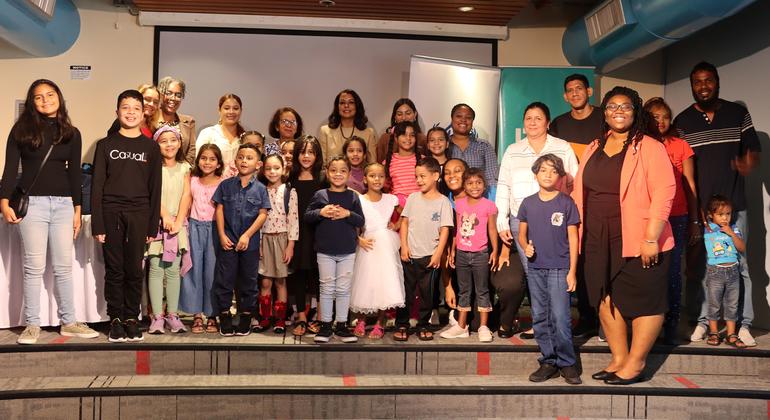11-year-old Venezuelan refugee Astrid Saavedra eagerly entered her fourth-grade classroom in Trinidad and Tobago for her first day of school in September. She couldn’t wait to dive into her favorite subject, mathematics, but she was also excited about teaching her classmates about her home country, Venezuela.
Astrid is among the first refugee and migrant children from Venezuela to be permitted to enroll in the Trinidadian national public education system, thanks to a change in the country’s immigration regulations.
IOM/Gema Cortés
Thousands of Venezuelans have fled their country (file)
She was among the initial group of 60 children who met the enrollment requirements, including possessing a certified, translated birth certificate and immunization record, and being assigned to a school. This marked a significant step in Trinidad and Tobago’s commitment to fulfilling its responsibilities under the Convention on the Rights of the Child, an international UN human rights treaty.
“These youngsters, if they choose to stay in Trinidad and Tobago, will be well-equipped to join the country’s workforce, filling gaps in the labor market and contributing to innovation and sustainability,” stated senior UN migration agency (IOM) official Desery Jordan-Whiskey. “It’s also a chance for these primarily Spanish-speaking children to contribute as much as they receive by assisting their peers in learning a second language.”
An investment in the future
The legislative changes that allowed children like Astrid to attend school were implemented in July 2023 during a meeting of UN officials and politicians, where Trinidad’s Minister of Foreign Affairs announced the Government’s decision.
UN agencies believe that the right to education exemplifies how human rights intersect with sustainable development.
“Advocating for educational access is crucial for bridging the gap between immediate humanitarian needs and long-term development objectives,” stated Amanda Solano, head of the UN refugee agency (UNHCR) in Trinidad and Tobago. “By providing education to refugee and migrant children, we are not only meeting their immediate needs but also investing in their future and the future of Trinidad and Tobago.”

UNHCR Trinidad and Tobago
While over 2,000 refugee and migrant children are still excluded from the school system, the UN is working to provide them with alternative learning opportunities or place them in private schools. Nevertheless, there is a preference for broader access to the state school system.
A committee of UN agencies and partners, known as the Education Working Group (EWG), is collaborating with the Government of Trinidad and Tobago to understand the training and logistical support needed to accommodate a greater number of refugee and migrant children in local schools.
The goal is for numerous students like Astrid to be able to step into the nation’s classrooms at the start of the 2025-2026 academic year.




